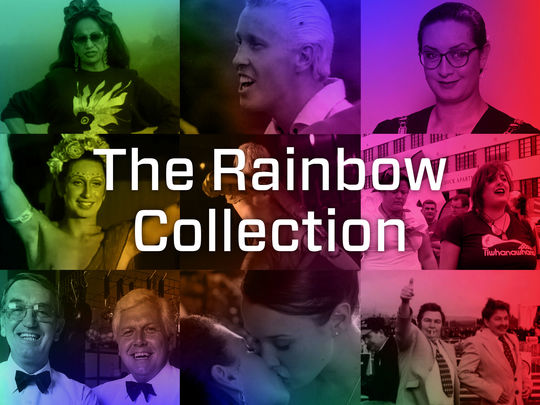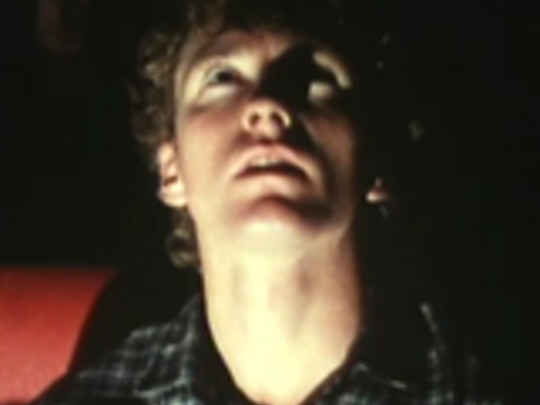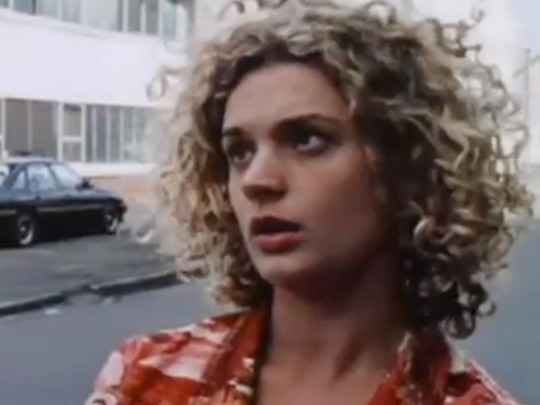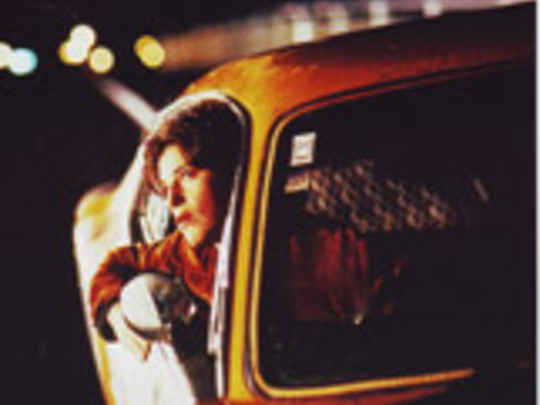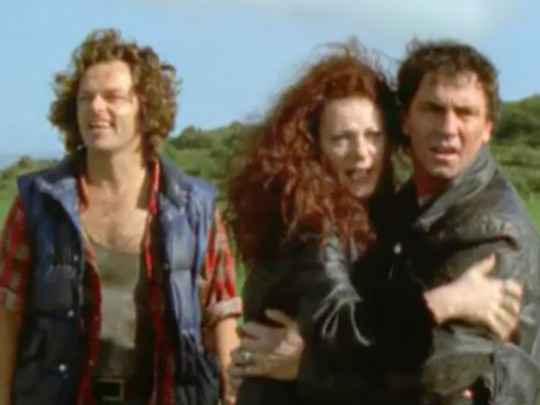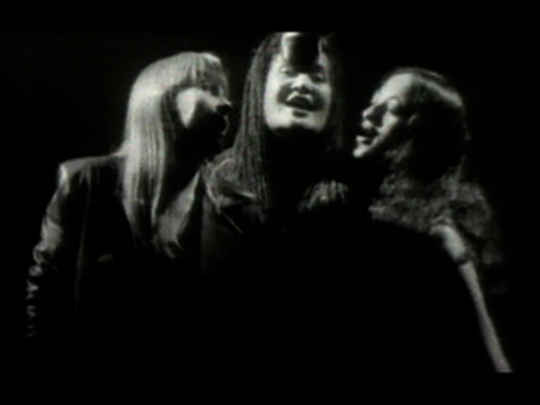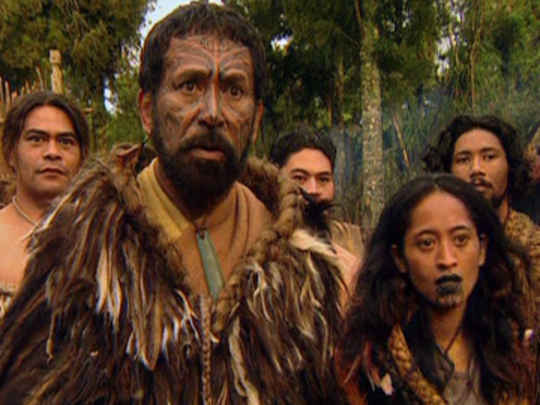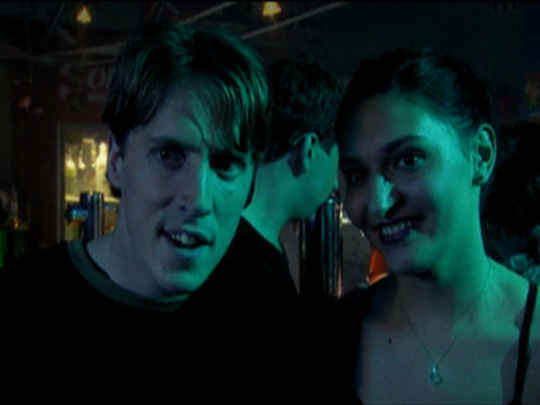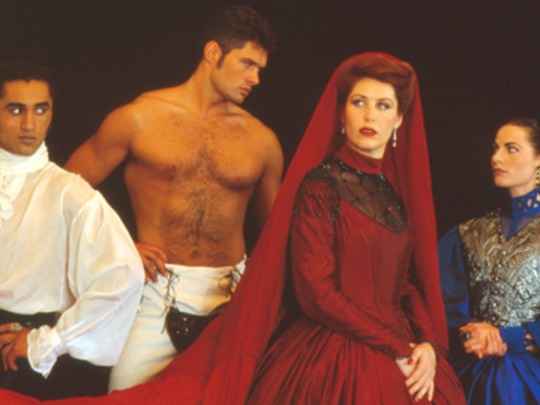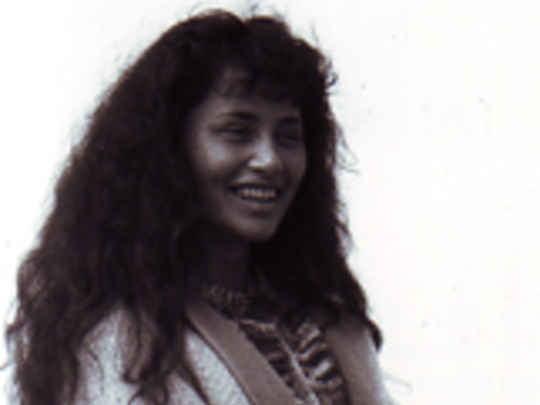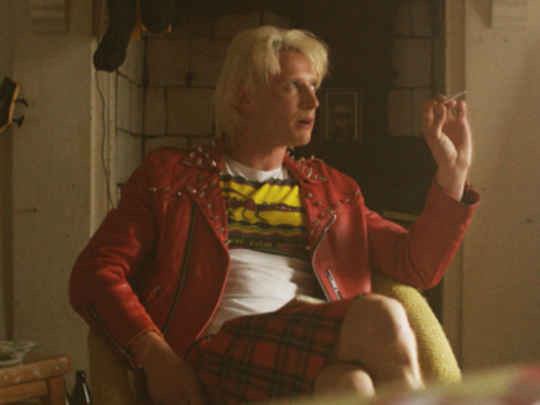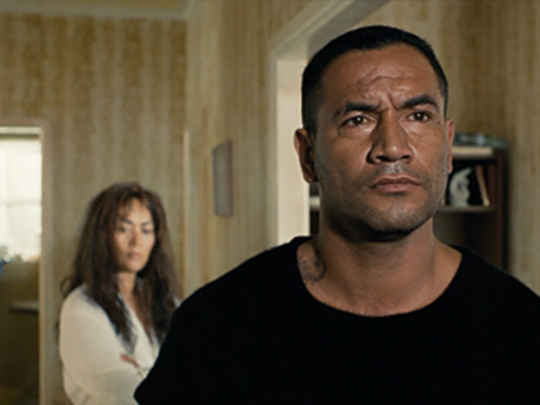When Love Comes
Film (Excerpts) – 1998
... the only one we felt could combine true musical ability on the one hand, plus be extravagantly beautiful, talented and sexy on the other.
– Director Garth Maxwell on casting actor Sophia Hawthorne to play singer/guitarist Sally
Definitely Nan Goldin. Robert Frank, Robby Muller, Danny Lyon. That's always the core of what I'm interested in, I guess.
– Cinematographer Darryl Ward on some of the photographers and cinematographers who influenced for the look of When Love Comes
Six characters in search of ... oh, you know, the usual — love, fame, meaning. The spin here is the sexual spectrum — gay, lesbian, hetero ... But there’s no mealy-mouthed tokenism here; conversely, no in-your-face strutting, either. It’s rare to see a film with gay characters that doesn’t feel obliged to make an issue of gayness, and that’s refreshing.
– Reviewer Helene Wong in The Listener, 11 September 1999
[Director Garth] Maxwell displays a talent for dialogue and direction —- and also for apt song lyrics — to make these people engaging and worth caring about. [Rena] Owen and [Simon] Prast, both of whom are well-seasoned actors, possess a wit and depth that lend gravity to a film intent on capturing the skittishness and tentativeness that so often accompany matters of the heart.
– Reviewer Kevin Thomas in The Los Angeles Times, 20 August 1999
Tender, elusive and exquisitely layered, it's a deeply moving love story.
– American magazine Flaunt
As Katie Keen, Rena Owen, who was so astounding in Once Were Warriors, is wonderfully wounded, barely held in...
– Reviewer Katrina Onstad, in Canadian newspaper National Post, 2000
...a sweet, fanciful soda pop of a movie out of New Zealand — it practically fizzes. But there's a kick-ass punk rock spirit here (even if the aesthetic is a little sanitised) that saves it from quirky cuteness . . . Writer/director Garth Maxwell . . . allows this underground scene, grubby as it is , to ooze with the romance it holds for its inhabitants. These kids are likable characters, not symbols of decay.
– Reviewer Katrina Onstad, in Canadian newspaper National Post, 2000
There was tumultuous applause, with foot-stomping and screaming.
– Writer/director Garth Maxwell describes an early screening at the San Francisco Gay and Lesbian Film Festival, OnFilm, August 1999, page 7
...in December, it will become the first NZ movie to have a substantial and exclusive release through 4000 Blockbuster video stores across the US.
– OnFilm, August 1999, page 7
She has great heart and she's also brilliantly equipped to go into very difficult areas, which her character does . . . She is one of the true stars New Zealand has produced and working with Rena was a genuine honour. She made the character fly.
– Writer/director Garth Maxwell on Rena Owen, in the press kit for the film, page 5
Dean just stood out shining ... he was a genius with the role from the start, plus he looks great and he was hungry for it. Dean's style is energised, intuitive and true — he has a great future ahead of him.
– Writer/director Garth Maxwell on actor Dean O'Gorman, in the press kit for the film, page 5
Having Peter [Wells] working on the script was a great advantage. It's such a character-driven piee, writing dialogue for six key roles was much easier with three writers. We were able to adopt different personalities and give each one a language all their own.
– Writer/director Garth Maxwell on writing the script with Rex Pilgrim and Peter Wells, in the press kit for the film, page 4
The pivotal character of Katie Keen was inspired by a woman [Garth] Maxwell knew who'd had a number one hit at just 15 years old. He was fascinated by the idea of someone who had experienced celebrity at an early age but has seen that moment pass; in the film, Katie is confronted by the fact that her dreams are out of sync with her reality.
– Press kit material on the character of Katie Keen, page 4
The film revolves around six characters who aren't intensely neurotic, but are on the verge of some crisis. They don't have the individual strength to help themselves, but together they find a way to interact towards their goals.
– Writer/director Garth Maxwell, in the press kit for When Love Comes
It has so much music in it — about 70 minutes I believe — if you count both foreground or background. It was such an epic to create all that new music.
– Writer/director Garth Maxwell
I’ve always felt that I dropped the ball there. [Producer] Michele Fantl had suggested Sweet As, which would have been perfect. But for some weird reason I felt it could be mocked as Sweet Ass. I mean you’re flying at 100 miles an hour and there are no off-ramps. So the titles were set and shot, and that was that.
– Writer/director Garth Maxwell on the title of the film
Writer-director Garth Maxwell aims for and achieves the emotional texture of Antonioni.
– Reviewer David Ehrenstein compares Garth Maxwell to Italian director Michelangelo Antonioni, in newspaper New Times LA
[Rena] Owen plays Katie Keen, a transvestite performer who was “famous in the States for a whole week . . . Owen, no doubt determined not to turn Katie into a grotesque, relies on only a hint of extra makeup and almost no discernible masculine affectations. If anything, the transformation is too subtle: One loses sight of the man inside the woman, which robs the character and situation of any urgency.
– Reviewer Glenn Lovell gets confused about the gender of Rena Owen's character, possibly thinking of an unmade Stewart Main movie that Owen was set to star in, Variety, 1 November 1998
When Love Comes is a lot like its partly pop, partly grunge score: A little raucous about the edges but soft and sentimental at the core. Go-for-broke performances by Rena Owen and fast-tracked Dean O’Gorman, add up to some blistering exchanges...
– Glenn Lovell, in his second Variety review of When Love Comes, 22 February 1999
We struggled with the title. We went through a whole bunch. The rostrum camera was booked to shoot the titles, and we had an absolute cut-off for changes. We were worried that it was too close to a song title that we did not own. Other ideas were being thrown about in desperation, but by then the film was already known as When Love Comes Along and was being tracked by buyers under that title; we figured that maybe by lopping off that one word, we still could relate to the name that had been established, and avoid legal jeopardy.
– Writer/director Garth Maxwell on calling the film When Love Comes
I've always had a policy where every new role has to be different from the previouis one, and Katie certainly fits that description. I thought the script was daring, and had a real honesty and sincerity about it.
– Rena Owen in the press kit for When Love Cines

